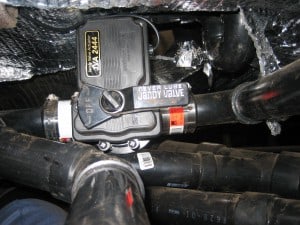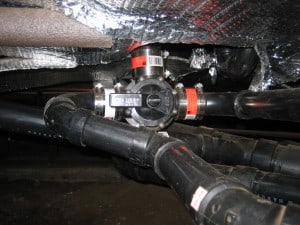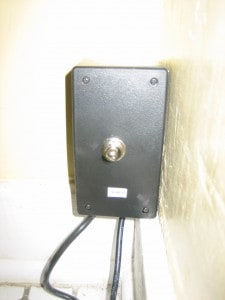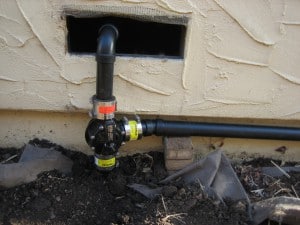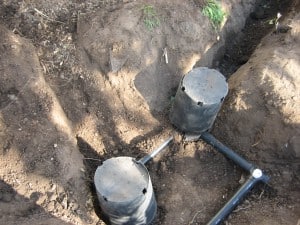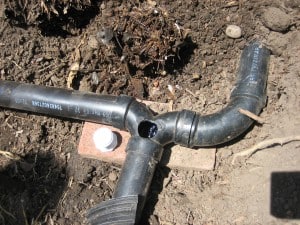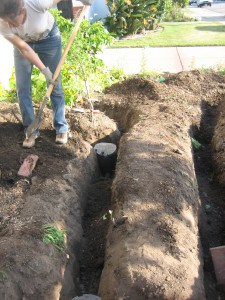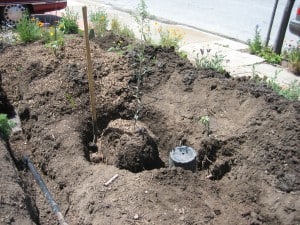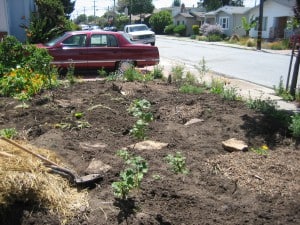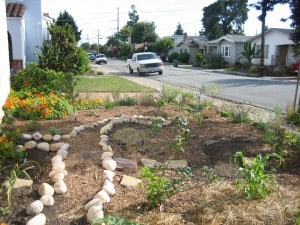Shower system with electronically controlled diverter valve
- Goals: To reduce water use and grow fruit trees for food security.
- Site description:A small crawl space, tight shower plumbing and limited space with barely enough slope to exit over the cement foundation. Outside the yard is flat, with a cement walkway. All the trees being irrigated are young and newly planted.
- Fixtures and output: One shower, currently used by one person for 5 minutes per day. (2.5 gallons per minute x 5 = about 12 gallons per day) There are plans for a second person to be using the shower, which will double the amount of greywater.
- Cost: two 3-way valves- $50 each ($100), one actuator- $250, fittings-$50, pipe-$50: material total (in 2008): $450
A Jandy 3-way valve is installed in the shower drain pipe. Because this crawl space is very small and the 3-way valve is far from the entrance and hard to reach, an electronic ‘actuator’ motor was installed onto the valve to allow for a control switch inside the bathroom to control the valve.
A second 3-way diverter valve outside creates two zones for irrigation. The pipe on the right side travels to the front yard, and the pipe going down out of the valve travels to the side yard. Each zone irrigates multiple fruit trees. The handle on the valve controls which direction the water goes.
Greywater flow is divided using double ell flow splitters. in the front yard the water was divided up to irrigate six small trees, and in the side yard it was divided up to irrigate 2 larger trees. The flow splitter is placed on a brick to keep it level, and the pipe coming into it comes in straight (2′ of straight run) to ensure an even split.
Branched drain pipes must maintain a 2% downward slope, or 1/4 inch drop per foot across. As the pipe gets farther away it gets deeper and deeper. This system had to go under a sidewalk, and a waterline, so the pipe ended up deeper than desired when it reached the farthest trees.
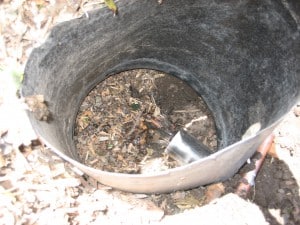
Greywater infiltrates into mulch basin, the pipe is a few inches above the ground to prevent clogging.
Greywater infiltrates into mulch basin, the pipe is a few inches above the ground to prevent clogging.Greywater outlets are subsurface. The outlets are covered with concrete pavers to prevent dirt, mulch, and people from falling into the hole.
- Specifications and Notes: Since the outlets ended up being so deep underground (between 12-18″), the young fruit trees will need supplemental irrigation until their roots can access the water.
- Maintenance and trouble shooting: Annual replacement of mulch.

